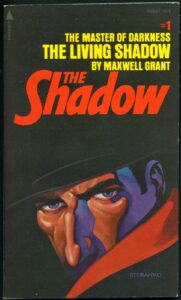
I’m reading Ǫrvar Odds saga at odd moments when I should be working, lately. I was looking up útnes which C&V (un)helpfully gloss as “an outer ness”. The AHD more helpfully told me that a ness is a cape or headland, and also that the word comes from PIE *nas- “nose”, which I thought was kind of funny.
The AHD’s etymological entry for *nas- also mentioned nark “informer”, which floored me. I always thought that nark was an abbreviation of narcotics, as an undercover cop trying to infiltrate the drug trade. But apparently nark is older than that (attested in 1846 according to the OED). It may, as AHD suggests, derive from Romani nak “nose”. English nose as “police informer” is attested in the late 18th century and is probably older still.
The OED throws some shade on the idea that nark derives from Romani, pointing its nose toward knark (roughly: “a jerk”), attested 1851. But there’s no reason to prefer knark over nak as the source of nark, particularly as knark does not appear earlier and the OED doesn’t know the source of knark either.
Eric Partridge suggested French narquois as a source, which means “cunning, deceitful; crook” as early as the 1600s. But I think I incline towards Romani nak “nose”, if only because it’s funnier.
